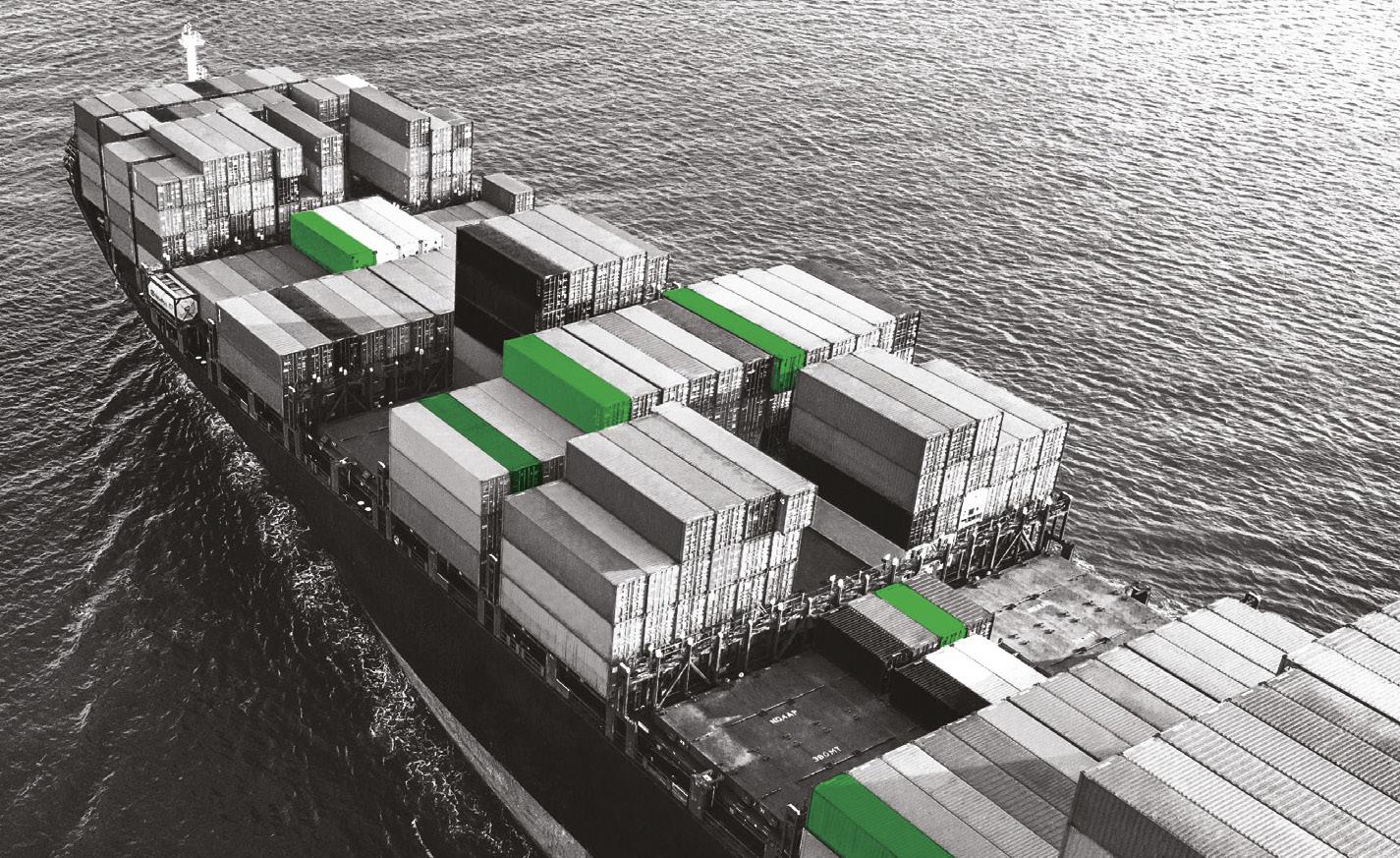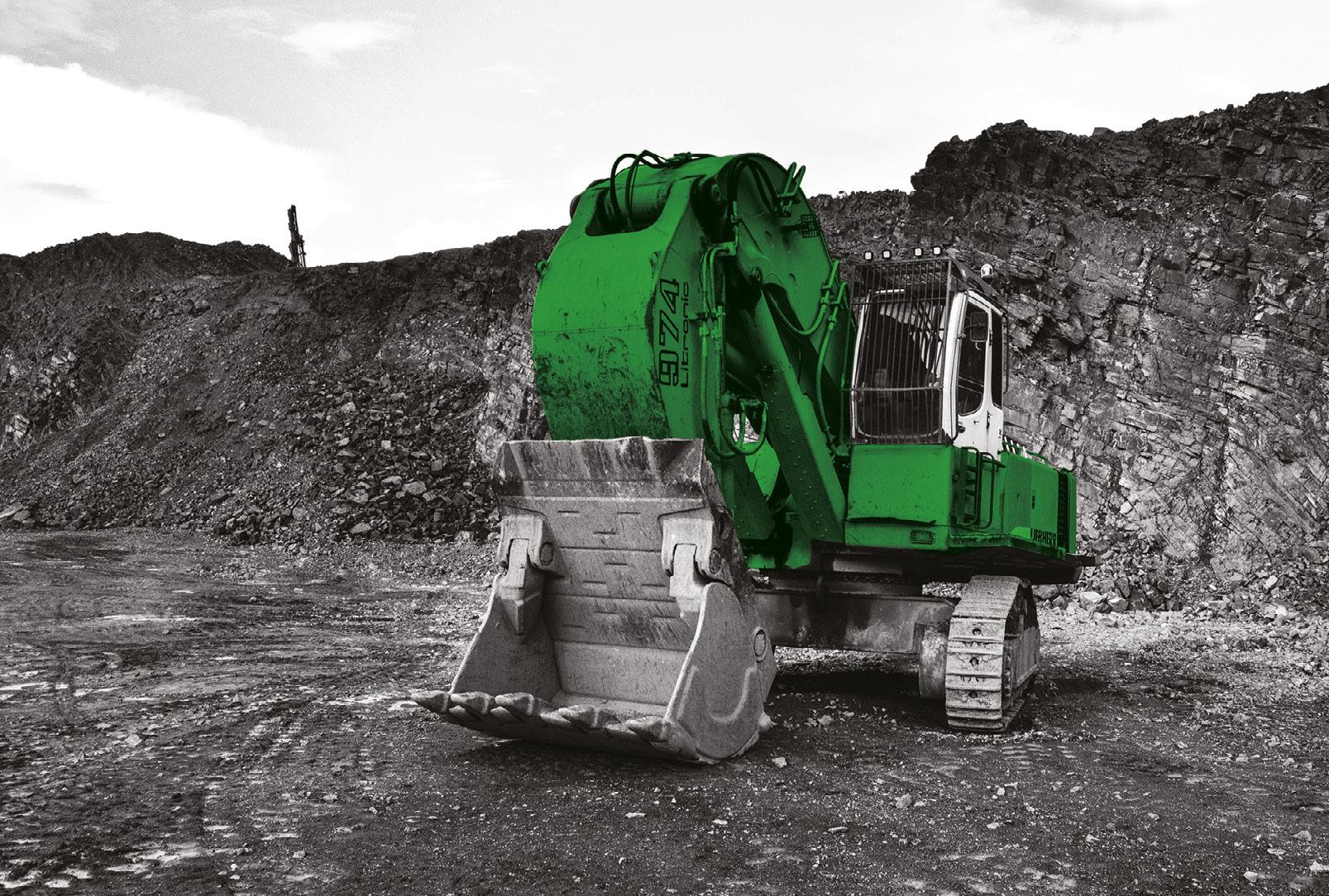
3 minute read
INDUSTRY FOCUS: LOGISTICS
//Often, the difference between the good and great logistics businesses is finding the opportunities in the challenges. During tough times, the options are sit back and be overtaken, or choose optimism and accelerate.
Times have been tough on South Africa’s roads. Fuel price volatility, global supply chain collapse, port congestion, infrastructure deterioration, environmental issues, and the Covid hangover continue to blight logistics firms. Add a weak Rand and slack investor confidence and you have a recipe for disaster, but for many there are things happening that are helping to build long-term stability.
Tengwa Africa is a leading provider of transport and logistics with a strong road transportation business, a rail loading operation, warehousing, freight forwarding, and general logistics management capabilities. From mineral resources to consumer goods, to industrial products, Tengwa – through a network of partner businesses – has the market covered. Collaboration with Shukuma Logistics, Concord Road Transport, and Seamaster Maritime & Logistics help Tengwa to simplify operations.
Wholly owned by Export Trading Group (ETG) – a diverse global conglomerate – Tengwa Africa is looking forward to growing its influence as trade in commodities increases. Despite weak economic conditions across many of the spaces in which Tengwa plays, this relatively young business has managed to achieve significant results that are positioning it as a leading player in essential corridors.
“Tengwa Africa is predominantly a road transport business,” explains COO Rupert Schmidt. “The bulk of our business involves road transportation of a range of commodities including fertiliser, coal, magnetite, chrome, and soft commodities including beans and soya. In Africa, we moved a lot of copper and other project cargos from the DRC to the Port of Durban. We have in country operations in Zambia and Mozambique as ETG.”
Commercial Manager, Berndt Burger furthers: “We ride on the back of the commodities that move in Africachrome, nickel, lithium and other ores used in batteries. We run everywhere in southern Africa, anywhere south of the DRC. We are regularly moving products into Namibia, Botswana, Mozambique, eSwatini, and Malawi.”
Exciting Times
Tengwa’s provision is all about efficiency. Too often in southern Africa loads are delayed or lost, at the cost of international clients who rely on local partners. Seeing this as unacceptable, Schmidt – who holds a master’s degree in Transport Economics from Stellenbosch University – and Burgeran industrial engineering grad from the University of Pretoria and experienced industry professional – have been part of a team that has redesigned processes and systems, and right-sized operations to ensure true value-add for clients, solving problems through a reliable and consistent approach.
Recently, the company sold its fleet of 100 trucks and 160 trailers in a strategy change, opting for an asset light tactic. Partnering with a fleet owner - also part of the group - Tengwa now works with 500 vehicles across Africa. This assists the company to work across two models - managed fleet and traditional transport brokerage.
“This is made up of tipper vehicles for commodity mining, and transport vehicles to work on the copper corridor from northern Zambia and the DRC down to Durban or Dar es Salaam,” says Schmidt.

This is where the big volumes are set to grow in the future. By 2035, global demand for copper will reach 50 million tonnes. 25 million tonnes were demanded in 2021 with mines only able to produce 22 million tonnes. This situation has sent the price soaring. The DRC and Zambia are among the world’s top 10 copper producers and African ports ship to China regularly. By 2030, lithium carbonate equivalent demand will surpass two million metric tons. Namibia and Zimbabwe are Africa’s lithium hubs with mining expected to increase in coming years as the element is used in a global green energy transition.
“It’s an exciting time as we have good flows, good hands on the ground, good African coverage, good African experience, and we are partnering with companies with the same mindset,” explains Schmidt. “We are matching our core capabilities – people, product flows, and facilities – with a partner that understands the lay of the land and can help us operate efficiently. The market is booming, especially from a copper perspective, and we know lithium will be the next big thing.
“We also have a rail loading business in Phalaborwa where we load magnetite (iron ore derivative). The client has two beneficiation plants where they upgrade the quality of the magnetite and we load the trains for them, in collaboration with Transnet, moving to Richards Bay and Maputo.”










